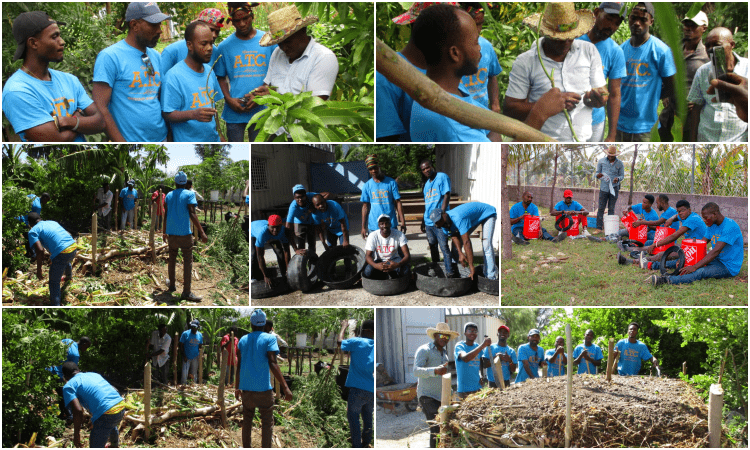Organic gardening in America is almost a luxury or exotic. In Haiti, it is almost a necessity because there aren’t fertilizers and insecticides readily available for the average Haitian subsistence farmer.
At our sustainable gardening training class in Haiti, we emphasize organic methods like making good rich compost as part of the natural, organic nutrients for the plants. Here you see the students learning to mix layers of kitchen scraps, green bio-mass, dried bio-mass, and soil into a large compost pile.
In 90 days, this moistened pile will yield wonderful rich compost—a natural fertilizer. We also teach worm farming and how to use the byproduct from the worms as an additional rich organic fertilizer. The students are also learning about grafting fruit trees to increase yields of better quality fruit sooner. Grafting has many benefits, and it is a great skill for the students to know about.
Another good “appropriate technology” we teach the students is how to make useful gardens out of re-purposed things, like old tires. Here the students are learning how to cut the bead of a tire and turn it inside out to make a great, long-lasting garden container, and then they’ll add some of their home-made soil and compost and voila, a productive garden that is easy to maintain.
This Saturday, the students will graduate from their three-week course. When they get their Certificate of Achievement, they will return home with new skills, new confidence, and parting gifts of tools, seeds, irrigation kits, and maybe even some starter plants. We love having these training classes and seeing the great transformation in the students during the class. These students will now be able to demonstrate to others back home how to do the same things. All of this is helping Haitians to help themselves.
A huge thank you to those donors who help this program by sponsoring our “Sustainability Outreaches.”
God Bless you.
Rad Hazelip


